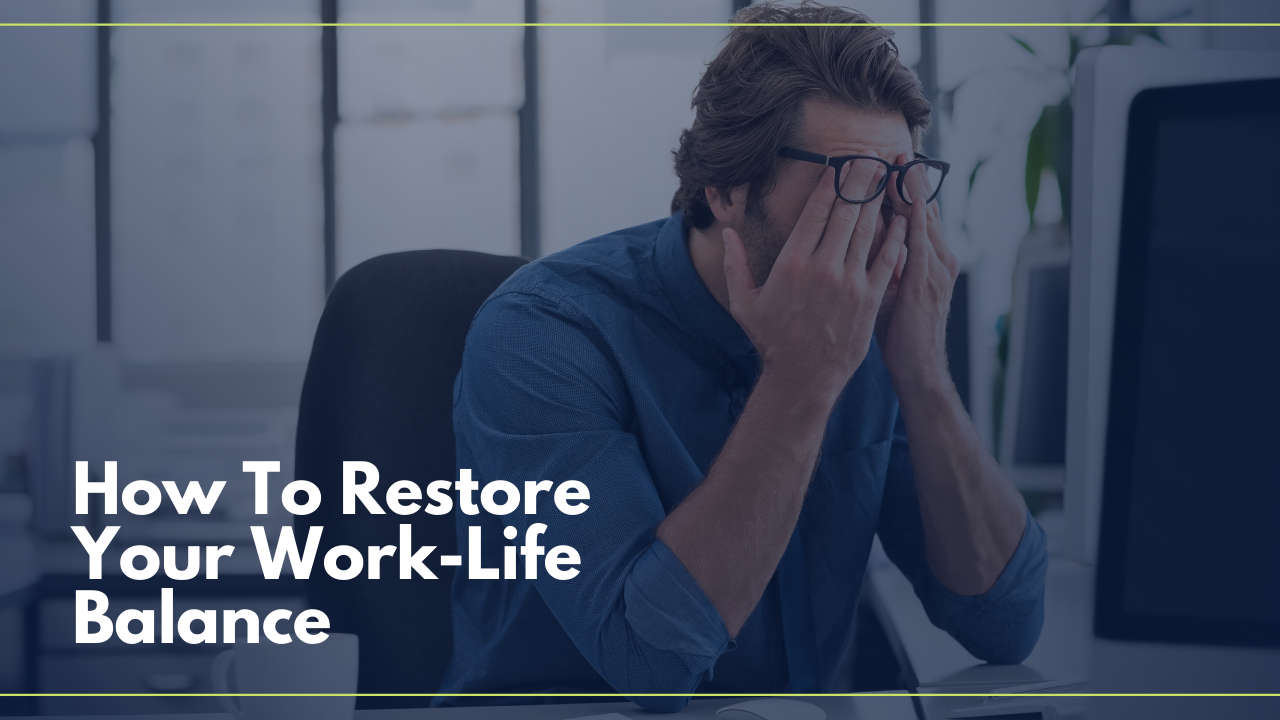- Technology has provided workers with various benefits, however it has also made it harder for people to switch off from work.
- Some of the tell-tale signs that your work-life balance is out include neglecting yourself, declining relationships with loved ones, and working long hours.
- To re-establish work-life balance, individuals can schedule breaks, learn to say no, and track their time.
This article was written by Nick Stephens. Nick Stephens is a content writer at Chanty, a simple and AI-powered Slack alternative. Nick is specializing in the digital marketing niche. He has an unhealthy obsession with conversion rates and sales funnels. When he isn’t writing you can find him Djing at festivals and parties.
In this day and age, it can be hard to get the balance between work and the rest of your life right. Whether you work remotely or office based, some jobs can be stressful and time consuming. And whilst technology has given us lots of benefits, it’s now even harder to switch off from work mode, figuratively and literally.
Suggested Reading: “The Importance of Switching Off: how to Managed Wellness in an Always-on Culture”
We’ve included some of the tell-tale signs in this article that your scales may be tipping a little too much in the work direction. Luckily there are some steps you can put in place that may help to bring yourself back to the middle.
The Signs:
You’ve Stopped Looking After Yourself
Are you neglecting yourself? Did you used to go to the gym and eat a healthy diet, but now you work all evening and grab takeout on the way home? If you aren’t putting yourself first anymore then this may be something you need to address.
Relationships are Suffering
Does your partner wish they could spend more time with you, do you not get to see your children enough? Maybe your friends complain that they never see you anymore?
Find it Hard to Switch Off
Do you find yourself constantly thinking about work, even when you are doing other activities? Do you find yourself answering emails during off business hours and during the weekends?
Making Mistakes
Are you finding it harder to concentrate? Have you noticed that you are making mistakes when you shouldn’t be?
Long Hours
Do you work long hours, maybe you take work home with you if you have an office-based job, or you work late into the night remotely?
Untidy Spaces
Is your work and living space overflowing with clutter? Have you run out of clean clothes and it’s been a while since you vacuumed up?
Little Leisure Time
Do you get to do things you enjoy and are passionate about, often? Do you get to play sports or practice the piano? When was the last time you took a vacation or went on a holiday?
What Can You Do About It?
Mental Health America lays out advice here for restoring some balance in your life. Including:
- Setting Manageable Goals Each Day: Being able to meet goals gives us a sense of control, which has been shown to reduce the stress created by work, so getting daily wins can help. They recommend making a ‘To-Do’ list, listing the top priority tasks and getting rid of the unessential.
- Take Breaks: Taking small breaks could help to improve concentration and decision-making ability.
- Divide and Conquer Responsibilities: In your home life, fairly divide chores and make sure it is clear who is doing what, helping to avoid any issues.
- Get Support: Get help from friends, family or a mental health professional if you need it.
- Don’t Overcommit: Learn to say no to things if possible, when you know you can’t fit it in.
- Stay Active: In addition to the more well-known health benefits, exercise can reduce stress depression and anxiety.
Unplug
Nowadays it can be hard to switch off from work at all, Rescue time recommends changing notifications settings for your communication apps so you are not constantly receiving prompts, and also setting out of office hours.
Having a digital detox in your downtime could help. The National Sleep Foundation recommends to stop looking at screens up to 2 hours before bedtime as it can make it harder to go to sleep, and decreases REM sleep time.
Track Your Time
Tracking what you do with your time will help you prioritise things and work smarter. If you can see where you spend most of your time, you can work out what is most important or effective and reduce or increase accordingly, hopefully giving you more time overall, and making things less stressful. There are lots of apps available just for this purpose.
Additionally, the Pomodoro technique may help you to be more efficient in your tasks. This is a technique where you break work into small chunks with a break between each chunk, and a longer break every 4.
Being Organised
Being organised may help you to prioritise your time better, there are many apps out there to help you organise your time more efficiently such as Asana and Trello.
Everything in its Place
When working remotely it might help to have a specific area dedicated to work, this could help to separate the different areas of your life.
Meditation
Meditation may help you to be more in the moment instead of thinking about work and your to-do list. It may help to reduce stress, anxiety and leave you with a clearer head.
Wrapping it Up
Getting the work life balance right can be tricky, especially when working remotely, but with some adjustments in mindset, routine and maybe some extra tools, you might be able to bring those scales more back to the middle.



 Dr. Gleb Tsipursky – The Office Whisperer
Dr. Gleb Tsipursky – The Office Whisperer Nirit Cohen – WorkFutures
Nirit Cohen – WorkFutures Angela Howard – Culture Expert
Angela Howard – Culture Expert Drew Jones – Design & Innovation
Drew Jones – Design & Innovation Jonathan Price – CRE & Flex Expert
Jonathan Price – CRE & Flex Expert












